Search
Did you mean: Delos?
Summary 
Loading AI-generated summary based on World History Encyclopedia articles ...
Search Results

Article
Spartan Women
Spartan women had more rights and enjoyed greater autonomy than women in any other Greek city-state of the Classical Period (5th-4th centuries BCE). Women could inherit property, own land, make business transactions, and were better educated...

Definition
Neodamodeis
A huge part of the Spartan population was made up of those who were not actually Spartan, the helots; a cause of great concern to the Spartans throughout their history. These helots were slaves that were usually captives of the Spartans forced...

Article
The Delian League, Part 2: From Eurymedon to the Thirty Years Peace (465/4-445/4 BCE)
This text is part of an article series on the Delian League. The second phase of the Delian League's operations begins with the Hellenic victory over Mede forces at Eurymedon and ends with the Thirty Years Peace between Athens and Sparta...
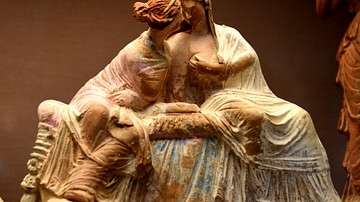
Article
Ancient Greek Society
Although ancient Greek Society was dominated by the male citizen, with his full legal status, right to vote, hold public office, and own property, the social groups which made up the population of a typical Greek city-state or polis were...

Quiz
Daily Life & Religion in Ancient Greece
Arete Eusebia Ethos Oracle Panhellenic Perseverance Greed Vanity Fidelity Helot Stadion The Titans

Definition
Athens
Athens, Greece, with its famous Acropolis, has come to symbolize the whole of the country in the popular imagination, and not without cause. It not only has its iconic ruins and the famous port of Piraeus but, thanks to ancient writers, its...
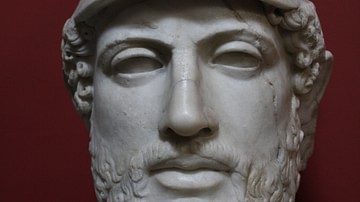
Definition
Pericles
Pericles (l. 495–429 BCE) was a prominent Greek statesman, orator, and general during the Golden Age of Athens. The period in which he led Athens, in fact, has been called the Age of Pericles due to his influence, not only on his city's fortunes...
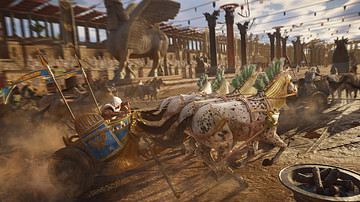
Definition
Cynisca of Sparta
Cynisca of Sparta (b. c. 440 BCE) was a Spartan royal princess who became the first female Olympic champion. Defying the traditional role of women in ancient Greece, she competed in the Olympic Games alongside the men and won. Her triumph...
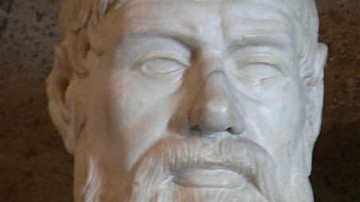
Definition
Pausanias (General)
Pausanias (c. 510 - c. 465 BCE) was a Spartan regent and general who won glory by leading a combined Greek force to victory over the Persians at the Battle of Plataea in 479 BCE. Famously immodest regarding his own talent, he was beset by...
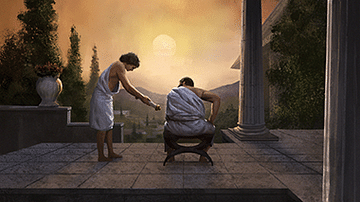
Definition
Agesilaus II
Agesilaus II (c. 445 – 359 BCE) was a Spartan king who won victories in Anatolia and the Corinthian Wars but who would ultimately bring total defeat to his city through his policies against Thebes. When Sparta lost the crucial battle of Leuctra...